
chamomile, chamomilla, genuine chamomile, chamomile common chamomile.
Chamomile (Matricaria chamomilla L) is an annual herb found in Europe, North Africa and northern Asia. Chamomile comes from the Greek words chamos meaning ground and milos meaning apple. Chamomile scent is like that of an apple and grows about a foot from the ground and so comes the name. Chamomile has long been used since ancient times for its medicinal and health benefits. Chamomile is used to treat sleep disorders, digestive problems, pain reliever and many others.
Chamomile is a daisy like plant that creeps along roadsides and fields. Chamomile produces a furrowed and branching stem with pale green leaves that are divided into thread-like segments. Chamomile flowers bloom in late summer singly in an erect stalk. The flowers are similar to daisies with white outer ray florets and yellow disk centers. Chamomile bears small dry fruits.
Active constituents that are found in Chamomile include the following: apigenin and alpha-bisabolol, other compounds in chamomile include: sesquiterpenes, terpenoids, flavonoids, coumarins such as herniarin and umbelliferone, phenylpropanoids such as chlorogenic acid and caffeic acid, flavones such as apigenin and luteolin, flavanols such as quercetin and rutin, and polyacetylenes. The combination of these chemicals provide the claimed health benefits of Chamomile although limited scientific research would support these claims.
Chamomile has long been used as sedative to counter anxiety and to promote sleepiness even in ancient times. Modern day clinical studies have confirmed this health benefit from Chamomile in a randomized clinical sampling done to treat anxiety in people. The study showed that people who take chamomile capsules has reduced symptoms of anxiety as compared to those who took placebo. In a study done on rats, higher doses of chamomile extract have been found to induce sleep.
Another known health benefit from chamomile is its anti-allergy action. In a clinical study done on mice that are subjected to itch-scratch compound showed that the mice that were administered with German chamomile showed less symptoms as compared with those that weren’t given chamomile
Chamomile is traditionally used to treat digestive related problems including irritable bowel syndrome, indigestion, colic, diarrhea, and gas. Chamomile acts as a relaxant for the stomach muscles including the smooth intestines. Chamomile is usually used in combination with other herbs.
Chamomile extract are also used as ingredient for ointments, creams, and gels that are used to treat skin irritations. Chamomile is believed to have anti-microbial and anti-bacterial action that is good for treating wounds, eczema, burns, diaper rash bed sores and hemorrhoids.
Chamomile is also known to have anti-inflammatory action. In a study conducted on 14 people who were given chamomile tea. Test results of urine sample indicated an increased secretion of hippurate and glycine that is known to be anti-inflammatory substances.
Chamomile has long been used in traditional medicine for the treatment of inflammation-related disorders. In this study we investigated the inhibitory effects of chamomile on nitric oxide (NO) production and inducible nitric oxide synthase (iNOS) expression, and explored its potential anti-inflammatory mechanisms using RAW 264.7 macrophages. Chamomile treatment inhibited LPS-induced NO production and significantly blocked IL-1β, IL-6 and TNFα-induced NO levels in RAW 264.7 macrophages. Chamomile caused reduction in LPS-induced iNOS mRNA and protein expression. In RAW 264.7 macrophages, LPS-induced DNA binding activity of RelA/p65 was significantly inhibited by chamomile, an effect that was mediated through the inhibition of IKKβ, the upstream kinase regulating NF-κB/Rel activity, and degradation of inhibitory factor-κB. These results demonstrate that chamomile inhibits NO production and iNOS gene expression by inhibiting RelA/p65 activation and supports the utilization of chamomile as an effective anti-inflammatory agent. Source: Int J Mol Med. 2010 Dec;26(6):935-40.
Oxidative stress is a major factor in the pathogenesis of diabetes complications. The objectives were to investigate the effects of chamomile tea consumption on glycemic control and antioxidant status in subjects with type 2 diabetes mellitus (T2 DM). Results had shown that Chamomile tea significantly decreased concentration of glycosylated hemoglobin, serum insulin levels, homeostatic model assessment for insulin resistance, and serum malondialdehyde, compared with control group (all P < 0.05). Total antioxidant capacity, superoxide dismutase, glutathione peroxidase, and catalase activities were significantly increased by 6.81%, 26.16 %, 36.71 % and 45.06% respectively in chamomile group compared with these variables in control group at the end of the intervention (all P < 0.05). Short term intake of chamomile tea has beneficial effects on glycemic control and antioxidant status in patients with T2 DM. A larger sample population and a longer intervention period may be required to show significant clinical improvements. Source: Nutrition. 2016 Jan;32(1):66-72.
Anxiety and depression are the most commonly reported psychiatric conditions and frequently occur as comorbid disorders. While the advent of conventional drug therapies has simplified treatment, a large segment of the population goes untreated or declines conventional therapy for financial, cultural, or personal reasons. Therefore, the identification of inexpensive and effective alternative therapies for anxiety and depression is of relevance to public health. In the current study, the research team observed a significantly greater reduction over time in total HAM-D scores for chamomile vs placebo in all participants (P < .05). The team also observed a clinically meaningful but nonsignificant trend for a greater reduction in total HAM-D scores for chamomile vs placebo in participants with current comorbid depression (P = .062). Chamomile may provide clinically meaningful antidepressant activity that occurs in addition to its previously observed anxiolytic activity. Source: Altern Ther Health Med. 2012 Sep-Oct;18(5):44-9.
The purpose of this study was to evaluate the effects of chamomile tea on sleep quality, fatigue and depression in postpartum women. A total of 80 Taiwanese postnatal women with poor sleep quality (Postpartum Sleep Quality Scale; PSQS score ≧16) were recruited from November 2012-August 2013. They were systematically assigned, with a random start, to either the experimental group (n = 40) or the control group (n = 40). The participants in the experimental group were instructed to drink chamomile tea for a period of 2 weeks. The participants in the control group received regular postpartum care only. The PSQS, Edinburgh Postnatal Depression Scale, and Postpartum Fatigue Scale were used to assess outcomes. Two-sample t-tests were used to examine the mean differences in outcome variables between the two groups. Compared with the control group, the experimental group demonstrated significantly lower scores of physical-symptoms-related sleep inefficiency (t = -2·482, P = 0·015) and the symptoms of depression (t = -2·372, P = 0·020). However, the scores for all three instruments were similar for both groups at 4-week post-test, suggesting that the positive effects of chamomile tea were limited to the immediate term. Chamomile tea may be recommended to postpartum women as a supplementary approach to alleviating depression and sleep quality problems. Source: J Adv Nurs. 2016 Feb;72(2):306-15.
Chamomile plant is largely cultivated. Chamomile plant can bought in pots or can be grown from seeds. Otherwise the herbal medicine grades can be bought from health stores.
Chamomile is commercially prepared as powdered, capsule, essential oil, dried whole flowers, tea bags and tincture forms. Chamomile products are vailable in most fitness and health stores. Chamomile is also available online via Amazon as listed: Chamomile Flower Whole (Egypt), there are other brands to select from, be sure to select one from a reputable manufacturer and do follow the suggested dosage.
Chamomile Extract: Taken 1:1 in 45% alcohol, Used 3 to 4 times daily
Chamomile Tincture : Taken 1:5 in alcohol, 3 to 4 times daily.
Chamomile capsules : Taken 3 to 4 times daily or as directed.
Generally safe. Chamomile is considered safe for most adults if taken in food amounts or as herbal medicine.
May cause allergic reactions. Chamomile may cause allergic reaction for people who are sensitive and has known allergic reaction to ragweed, chrysanthemum and other plants in compositae family.
Pregnancy and breast-feeding: There are no sufficient studies done to determine the safe use of Chamomile herbal medicine during pregnancy and breast feeding. It is best to avoid its use.
May cause blood thinning. do not use if taking blood thinning medications or supplements. May cause bleeding, not for use before or after major surgery. Not recommended for people with bleeding disorders.
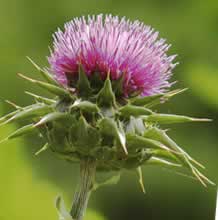 Silymarin extract still tops in liver protection
Silymarin extract still tops in liver protection Santan Flower has wound healing properties
Santan Flower has wound healing properties 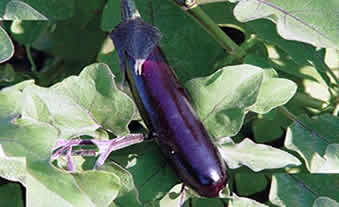 Antioxidant properties from Talong
Antioxidant properties from Talong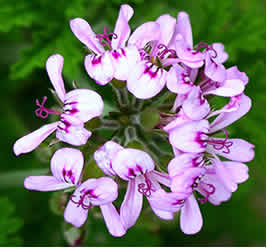 Malvarosa Plant found to have antioxidant properties
Malvarosa Plant found to have antioxidant properties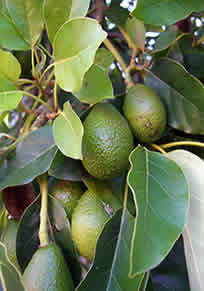 Anti-cancer properties of Avocado fruit
Anti-cancer properties of Avocado fruit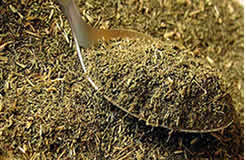 Stevia use can cause cancer, studies suggests
Stevia use can cause cancer, studies suggests